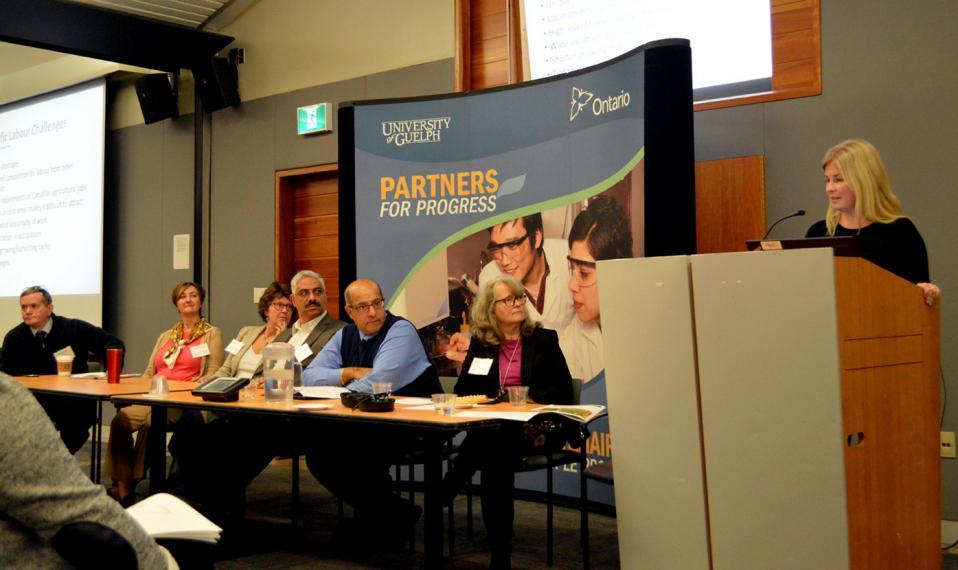Product development research day shares knowledge on robotics and agriculture innovations

How do you grow a "smart" tomato? The answer may lie in the future of robotics in greenhouses.
This was the focus at the Product Development and Value Chain Research Day on December 2 at the Ontario Ministry of Agriculture, Food and Rural Affairs (OMAFRA), where a panel of experts from the University of Guelph, the Ontario Fruit and Vegetable Growers’ Association, Vineland Research and Innovation Centre and OMAFRA discussed the future of greenhouse technology. Attendees learned about the benefits and challenges associated with integrating robotics, including human resources, process management, innovation adoption and quality assurance.
“What this panel demonstrated was that the technology required to solve many problems facing greenhouse crop production exists but that it and the relationships among participants in the value chain needs further development before it can achieve mass adoption,” said Erna van Duren, professor in the School of Hospitality, Food and Tourism Management and research program director for the Products and Value Chains Research Theme with OMAFRA. “There is so much potential to improve the production process and I hope attendees were left with a better understanding of the possibilities.”
Specifically, the panel discussed the Guelph Intelligent Greenhouse Automation System (GIGAS), an invention of Medhat Moussa's Robotics Institute in the School of Engineering at the university. The possible benefits of GIGAS include enhanced monitoring of the crop to ensure quality, reduction of manual labour and increased product information for the consumer, all of which are benefits that align with current industry needs and trends.
“Consumers also want more information about the food they purchase, and this technology would be able to provide information such as weight, age, harvest time and other information about composition and traceability. It could also detect plant disease at an early stage,” van Duren added.
While there are many benefits to greenhouse robotics, dealing with the impact on labour will be one of the challenges facing the adoption of this technology. Manual labour needs will decrease, but other management and labour skills are needed to fully realize the benefits of this technology.
Student business research cases presented
The event also highlighted business research cases developed by van Duren’s MGMT*4000: Strategic Management class. Over the course of the semester, teams of business students researched topics aligning with the themes of the OMAFRA – U of G Partnership and participated in an interactive poster session in Macdonald Hall. The top six teams presented at the Product Development Research Day on the following:
- Agri-food for healthy aging
- How reproductive technologies can help meet demand of water buffalo products
- Developing high fibre foods for the increasing diabetic population
- Q fever testing strips and safety kits
- Co-operatives as an alternative distribution system to supply healthy local foods for rural development
- Managing nematode pests of root vegetables
“Most of the students in this class had a limited knowledge of agriculture at the start of the semester,” said van Duren. “Working on these cases gave them a better understanding of one of Canada’s most important industries as well as enhanced research skills for product development.”
Learn more about the Products and Value Chains research theme on the OMAFRA - U of G Partnership website.
